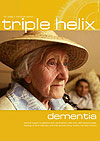The Chief Medical Officer advocates total abstinence from alcohol for under-15s, (1 ) but encouraging abstinence from underage sex is usually ridiculed. No surprise therefore that misleading headlines about a new study (2) on US virginity pledges were universally along the lines of 'Virginity pledge ineffective against teen sex despite government funding'. (3) The study showed those who made an abstinence pledge were just as likely to have had sex at age 21 as those who had not pledged, and were less likely to have used condoms at first intercourse.
Recently however, the RAND Corporation found that virginity pledges did delay sexual intercourse and did not decrease condom use. (4) Why then the differing findings? As so often, it all depends on the sampling. The RAND study included those as young as 12 and examined sexual experience 1-3 years later, whereas Rosenbaum only sampled over-15s and examined their sexual experience 5 years later when aged 21-23. Both studies carried out propensity score matching (5) to try and eliminate variables other than pledging. This meant that both pledging and non-pledging samples were matched, eg, for religiosity.
Perhaps it is not surprising then that, at 21-23, Rosenbaum's pledgers and matched non-pledgers did not differ in premarital sex, sexually transmitted diseases, anal and oral sex variables, since they all came from similar home backgrounds whether they pledged or not. What went largely unreported, however, was that both Rosenbaum groups demonstrated less teen pregnancy; fewer friends who used drugs; less premarital vaginal sex than US teenagers overall; and that the average age of first intercourse for both groups was 21 against the US average of 17. (6)
The Rosenbaum study then actually shows common factors in both matched groups that delay first intercourse by around four years, confirming many studies showing religion, family structure (7) and parental attitudes to sex (8) have a major influence on age of first coitus with no evidence of increased harm. STI rates were not statistically different at 5% level, even though they reported far less condom use. In fact the chlamydia rates were over 40% lower in the pledging group. For Rosenbaum to conclude that 'virginity pledge programmes do not prepare pledgers to protect their health if they have sex' and for the UK media to propagate it, is yet another case of the blind leading the blind. (9)































